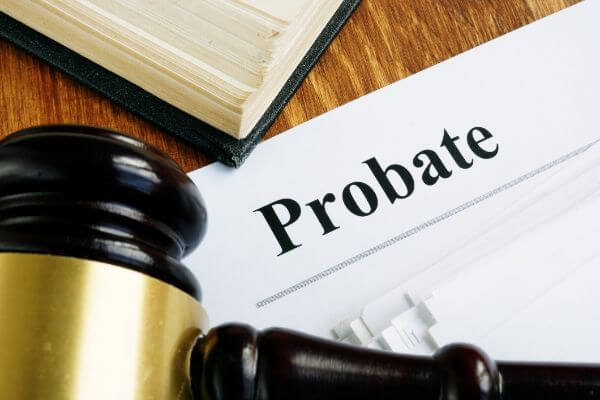Practice Areas
Estate Planning
Trusts
Probate


Many people don’t think about the word probate until someone close to them passes away. If the death was unexpected, this mysterious legal term may be mentioned in passing as loved ones cope with their shock and grief and make final arrangements. After the services are over, and the decedent’s estate has to be addressed, his or her survivors will have to learn more about this unfamiliar process. The first question to answer is: What is probate?
Probate refers to legal process a person’s estate will go through when they pass away with or without a will. In California, if a person dies with a will, his or her nominated personal representative, or executor, will file the will with the probate court the county where the decedent lived at the time of his or her death. The probate court will have authority over the administration of the person’s estate. If the person had a will, the court will monitor the tasks associated with paying debts from the estate and distributing the remainder to the decedent’s heirs. The court performs the same functions if the person died without a will, but their estate will pass to specific heirs according the law.
A probate court is a particular type of court that handles probate issues, adoption, name changes, guardianship, conservatorship, as well as other matters. When a person dies with a will, the document is going to be filed with the probate court, who will oversee the administration of the estate. The court will also oversee the administration of an estate of a person who dies without a will or other testamentary document.
When a person dies with a will, his or her personal representative will be responsible for carrying out most of the tasks for probate. This involves taking matters such as taking inventory of the decedent’s assets, identifying his or her debts, notifying creditors that the estate is in probate, and providing the court with an accounting of all assets and liabilities of the estate. The representative will review creditor claims against the estate and can accept or reject them. If the claim is approved, the debt is paid from the estate. If it is rejected, the creditor will have to sue on the debt. After the debts, and any taxes, are paid, the heirs an receive their bequests. This is a simplified explanation of a complicated and often confusing process. Often, personal representatives work with probate attorneys to understand their obligations and make certain they are complying with the law.
Probate without a will is similar to probate with a will except there is not a personal representative. The court will instead appoint someone called an administrator to handle the tasks. Ordinarily, this person is the decedent’s closest living relative or someone who will inherit a part of his or her estate. The court usually chooses the closest living relative, or a person who will inherit some portion of the decedent’s assets.
In California, probate can last 9 to 18 months if there are not any major issues. If someone contests the will, or makes a claim against it, there case could last signifignantly longer. The facts and circumstances surrounding the estate and its complexity will have a significant influence on how long a probate case can take. One of best ways streamline the process is by working with an experienced estate planning attorney as you develop your plan. Your counsel can help you prepare for the future in a way that protects your assets and loved ones and help you ensure that your final wishes are honored.
At the Law Offices of Alice A. Salvo, we are knowledgeable and experienced California estate planning and probate attorneys with the experience you need to make informed decisions for your future. Contact us today to schedule your consultation.